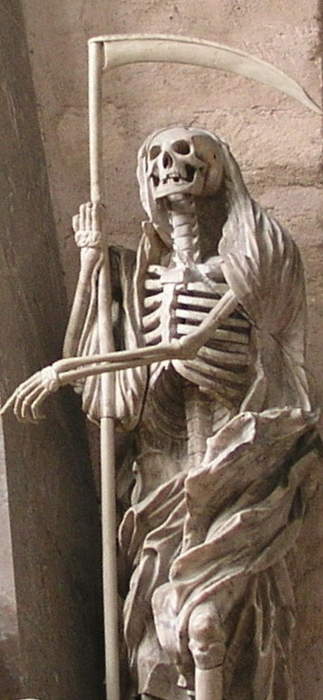 Death
Death is the end of life; the irreversible cessation of all biological functions that sustain a living organism. The remains of a former organism normally begin to decompose shortly after death. Death eventually and inevitably occurs in all organisms. Some organisms, such as
Turritopsis dohrnii, are biologically immortal; however, they can still die from means other than aging. Death is generally applied to whole organisms; the equivalent for individual components of an organism, such as cells or tissues, is necrosis. Something that is not considered an organism, such as a virus, can be physically destroyed but is not said
to die, as a virus is not considered alive in the first place.

